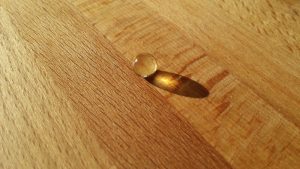[toc]
How to supplement vitamin D?
Generally, blood levels should be monitored regularly when taking vitamin D supplements. If there is an indication, regular measurement of the calcium level can also be useful.
“Vitamin D blood levels should be monitored
before, during, and after vitamin D supplementation”
The way you should use vitamin D supplements really depends on your vitamin D blood level. Your target blood level after vitamin D supplementation should be in the range of 75-150 nmol/L (30 – 60 ng/ml). If your blood level vitamin D level already is in this range you might consider taking a vitamin D maintenance dose or not, depending on how often you sunbath in the summer.
“The goal is an optimal vitamin D blood level in the
range of 75-150 nmol/L (or 30-60 ng/ml) vitamin D”
Generally, you should only take vitamin D supplements that consist of vitamin D3, because Vitamin D2 from plants is supposed not to have the same potency. It is important to know that vitamin D has a large therapeutic range and toxic effects of vitamin D are only to be expected at values above >450 nmol/L (>180 ng/ml). That means overdosing can be easily avoided.
“Only take vitamin D supplements that consist of vitamin D3”
Be aware that special supplementation applies to babies, pregnant women and breastfeeding mothers. In these cases, please consider a qualified healthcare practitioner, e.g. a medical doctor, before you start supplementing vitamin D.
Vitamin K2
If you are supplementing vitamin D it is advisable to also supplement vitamin K2. This can prevent that calcium from your food is stored in arteriosclerotic plaques instead of your bones.
“You should also supplement vitamin K2
whilst supplementing vitamin D”
Scenarios for vitamin D supplementation
If your vitamin D blood level is NOT sufficient you should supplement vitamin D. Actually, compensating a low vitamin D blood value with is pretty straight forward and supplements will not cost you more than about 30 euros.
“Compensating a low vitamin D blood value will
usually not cost you more than about 30 euros”
Vitamin D supplementation for severe deficiency and deficiency
If you have a severe deficiency (<12.5 nmol/L, equals <5 ng/ml) or a deficiency (12.5-25 nmol/L, equals 5-10 ng/ml) you will have to take very high initial doses to fill your vitamin D storage. That means you should take pills that contain 5,000 to 20,000 IU (International units).
In order to calculate the amount of pills you need, use an online calculator, for example here.
Vitamin D supplementation for insufficient vitamin D blood levels
If your vitamin D blood level is insufficient (25-50 nmol/L, equals 10-20 ng/ml), you should take high initial doses to fill your vitamin D storage. That means you should take pills that contain 5,000 to 10,000 IU (International units).
In order to calculate the amount of pills you need, use an online calculator, for example here.
Vitamin D supplementation for sufficient vitamin D blood levels
If your vitamin D blood levels are sufficient (> 50 nmol/L, equals >20 ng/ml), but you want to come into the optimal vitamin D range of 75-150 nmol/L (30 – 60 ng/ml), you should take medium initial doses to fill your vitamin D storage. That means you should take pills that contain 2,000 to 5,000 IU (International units).
In order to calculate the amount of pills you need, use an online calculator, for example here.
Vitamin D supplementation to maintain an optimal vitamin D level
If your vitamin D blood level is in the optimal range of 75-150 nmol/L (30 – 60 ng/ml) you might not need to supplement vitamin D at all. However, there are various reasons to supplement vitamin D with a maintenance dose.
Reasons to supplement vitamin D with a maintenance dose, even with an optimal vitamin D blood level
- It is autumn and you have got a vitamin D level that is on the lower edge of the optimal range.
- You generally (can´t or) don´t spend much time in the sun sunbathing.
- You are using sunscreens with a high sun protection factor when sunbathing.
- You have a naturally dark skin.
- You live in a country in the high northern hemisphere.
- You are overweight
- You are over age of >75 years old.
In these cases taking a daily maintenance dose of about 1,500-2,000 IU of vitamin D (depending on your weight!) makes sense.
It is advisable that you get your vitamin D blood level checked regularly (every 2-4 month) if you are on maintenance dose. This is to make sure you are not lacking vitamin D and to prevent slow overdosing.
Vitamin K2 supplementation
If you are supplementing vitamin D it is advisable to also supplement vitamin K2. The reason is that while increasing vitamin D in your body, this might create a relative lack of vitamin K2, which needs to be compensated to prevent that calcium from your food is stored in arteriosclerotic plaques instead of your bones.
“You should also supplement vitamin K2
whilst supplementing vitamin D”
But even when you are not supplementing vitamin D, supplementing vitamin K2 makes sense. Vitamin K2 is beneficial for your health because it is preventing the formation of arteriosclerotic plaques and can help against a range of vascular diseases, stroke and coronary heart disease.
I recommend using the MK-7 form of Vitamin K2 for supplementation, because of its longer half-life.
“I recommend using the MK-7 form of Vitamin K2 for supplementation”
General advice on supplementing vitamin K2
- Use the MK-7 form of Vitamin K2 for supplementation
- Because Vitamin K2 is fat-soluble, it should be taken before or during a fat-containing meal.
- Normally, 100 μg of vitamin K2 (MK-7) should be supplemented per day.
- In case of parallel intake of high-dose vitamin D, 200-300 μg of vitamin K2 (MK-7) should be supplemented per day.
The biochemistry of vitamin K2 and why you should supplement it
Vitamin K2 (Menaquinone) is very important to decide where the calcium from your food is stored in your body. If you have a lack of vitamin K2, calcium might be used to form arteriosclerotic plaques. If there is plenty of vitamin K2 calcium is used to form bones.
One reason for this complex mechanism is that vitamin K2 activates the protein MGP, which is able to remove calcium from arteriosclerotic plaques. Be aware that the exact way in which vitamin K2 acts on atherosclerotic plaques is not understood in detail. However, there is a connection between low vitamin K2 and the calcification of coronary heart arteries, as well as the occurrence of coronary heart disease.
Another reason is that, like vitamin D, vitamin K2 is involved in calcium homeostasis. While vitamin D is induces the synthesis of osteocalcin, vitamin K2 is important for the biological activation of osteocalcin. Osteocalcin is one of the two activators of bone formation by osteoblasts, which use hydroxyapatite and calcium to form bone mass.
(No!) Calcium supplementation
It is important not to supplement (large amounts of) calcium during vitamin D supplementation, as kidney stones may form and negative cardiovascular effects may occur. Negative cardiovascular effects might be the formation of arteriosclerotic plaques, which are causing vascular diseases, stroke and coronary heart disease.
“Do not supplement calcium during vitamin D supplementation.
It can lead to kidney stones and the
formation of arteriosclerotic plaques”
It also biologically doesn´t make sense to supplement calcium during vitamin D administration:
The paracrine function of vitamin D in our body is to facilitate calcium absorption in the intestine. That means the higher your vitamin D blood level, the more calcium you can absorb from your food. Interestingly, the maximum intestinal calcium uptake takes place at vitamin D blood levels above >80 nmol/L.
To conclude: when you are supplementing vitamin D you are actually increasing your calcium level naturally, via the calcium contained in your food, and you don´t need to supplement calcium.
“By supplementing vitamin D you are increasing
your calcium level naturally”



Leave A Comment